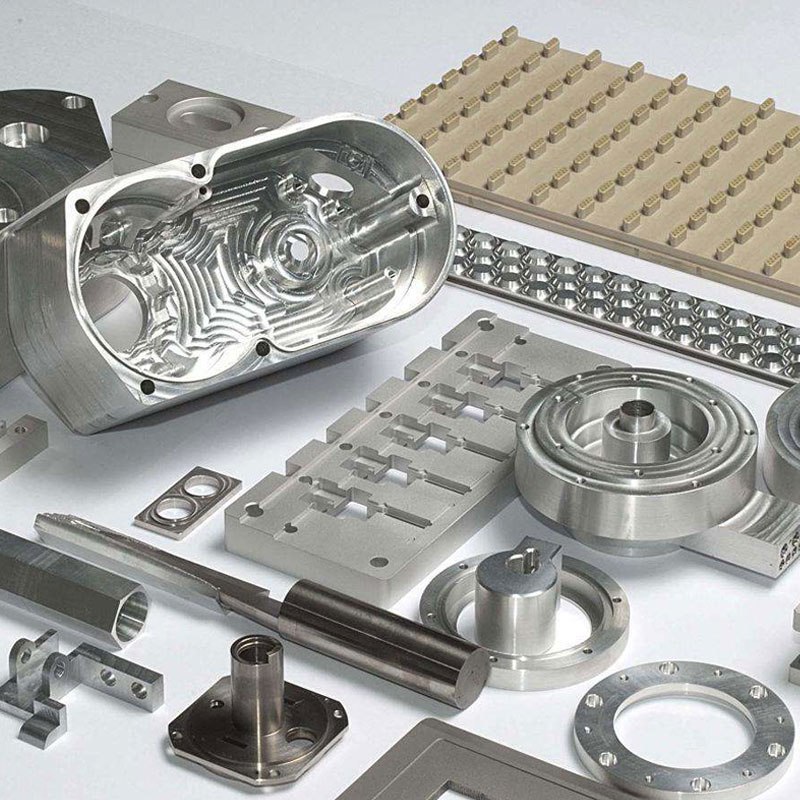Biomedical titanium alloy has high strength, good corrosion resistance, low elastic modulus, and excellent biocompatibility, and has become the main material of surgical implants and orthopedic products. Compared with coarse-grained medical titanium alloy, ultra-fine-grained medical titanium alloy has higher strength, better fatigue performance and corrosion resistance. Moreover, the ultra-fine grained titanium alloy can induce the in-growth of bone tissue, increase the interface bonding strength, accelerate the bone repair process, and has broad application prospects in the field of hard tissue repair materials.
Research shows that the large plastic deformation technology is an important technological way to obtain ultrafine grain titanium alloy. The large plastic deformation technology can introduce high-density dislocations by applying large shear stress without changing the size of the metal material, and refine the grain size to below 1 micron to obtain a super Fine grain material. This method is not easy to introduce impurities during processing, and there are no residual shrinkage cavities in the prepared sample, which avoids the problems of voids and poor compactness of ultra-fine grain materials prepared by other methods. At present, as an effective method for preparing ultrafine crystal and nanocrystalline materials, large plastic deformation technology has begun to be applied to the preparation of ultrafine crystal new biomedical titanium alloy materials, through the refinement of grains to optimize the comprehensive properties of the material, including strength , Plasticity, fatigue performance and corrosion resistance.
- Equal angle bending method (ECAP). The technique is to put the sample into two or more equal-angle channels with a certain angle to each other, and under the effect of pressure, the sample will undergo uniform pure shear deformation through the channel. Because the three-dimensional size of the sample remains unchanged before and after extrusion, the effective variable can be increased by repeated extrusion to obtain a uniform and fine structure. For example, the grain size of Ti-6Al-4V after 4 passes of ECAP using a mold with an internal angle of 120 ° was reduced from 28 μm to 250 nm, and its tensile strength and microhardness were increased to 773 MPa and 2486 MPa (HV) .
- Second, high-pressure torsion method (HPT). This method has the strongest grain refining ability in large plastic deformation technology. The sample bears a lot of pressure between the punch and the support. At the same time, due to the rotation of the die support, the sample undergoes axial compression and tangential shear deformation. This method can not only refine grains, but also effectively close the internal pores of the material and improve the strength and toughness of the material. For example, using the HPT method to treat Ti-6Al-7Nb alloy, after 5 turns, the microhardness value increased by 78.70%. The strength of the ultrafine-grained material prepared by the HPT method can be about 500 MPa higher than that of the ECAP method. Therefore, HPT technology is a very promising process for preparing ultrafine-grain medical titanium alloys.
- Third, the cumulative stacking method (ARB). In this process, two pieces of pre-treated surface sheet material are stacked and rolled at a certain temperature, and the same process is repeated to repeat the stacking and rolling until the desired effective variable is reached, so that the material structure is refined. Change. For example, after 4 cycles of rolling Ti-25Nb-3Zr-3Mo-2Sn alloy by the ARB method, the grains were refined and the tensile strength was increased by 70% compared to the original alloy, reaching 1220 MPa, and the yield strength increased to 946 MPa .
Fourth, friction stir processing (FSP). This is a continuous, purely mechanical solid-phase welding process. During the welding process, the stirring head rotates at a high speed and squeezes the stirring pin into the joint of two butt plates. The metal becomes soft and then plasticized, causing plastic rheology of the material at the processing site. For example, when Ti-6Al-4V is treated by FSP method, the yield strength and tensile strength of the resulting alloy reach 1067 MPa and 1156 MPa, respectively, and the elongation is still 21.7%.









